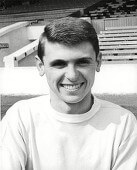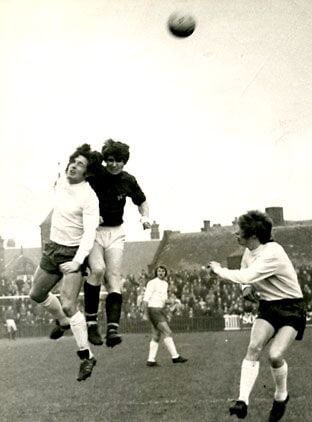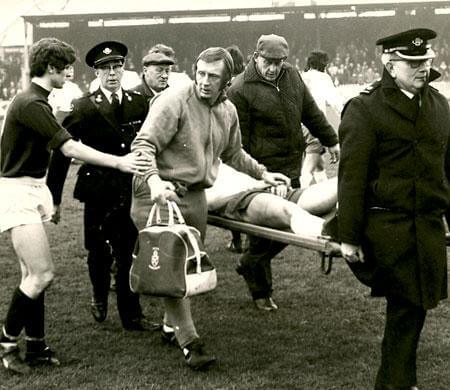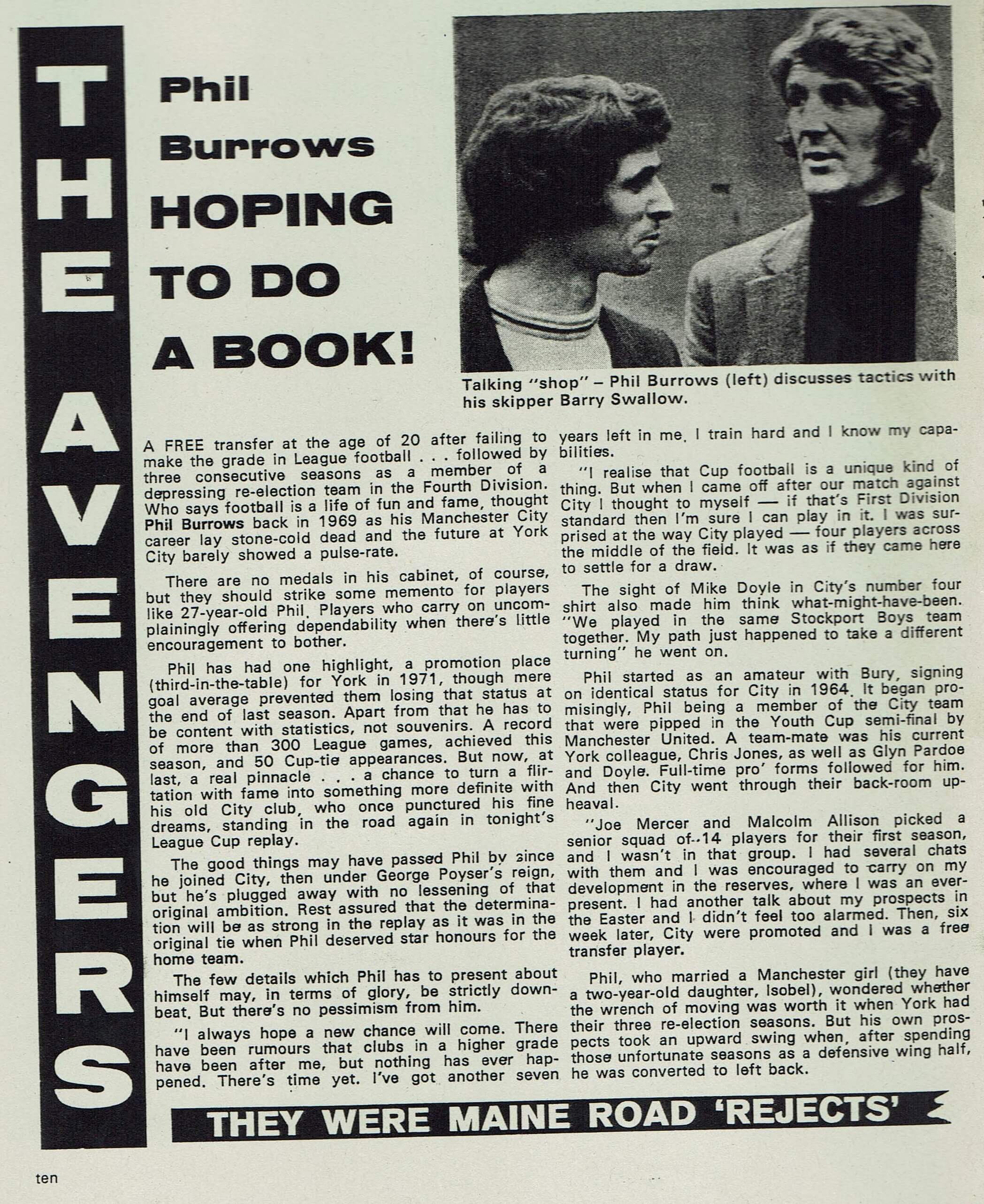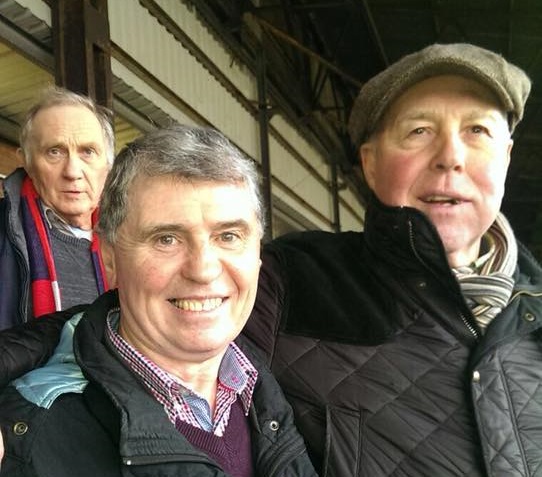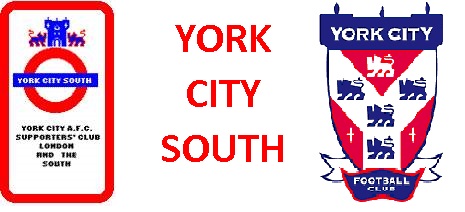

Phil Burrows
Signed from Manchester City in 1966, Phil Burrows never made their first team in an era when the top clubs would field 4 sides every Saturday.
Signing from Manchester City in the summer of 1966 on a free transfer, Burrows was to be a regular for City for the next 8 seasons, quickly establishing himself in the side, initially as left half (defensive midfield) before slotting in at left back as formations evolved to a back 4. During his last 4 seasons with City, he never missed a single league game, ever present and starring in our promotion campaigns in 1971 and 1974. During his first 4 seasons, he missed just 35 games. Don’t quote me, but I suspect in the post 1958 era and the end of a regional Division 3, no one has played so long for City without being relegated.
Burrows capped the 1973/4 promotion season by being named as City’s first ever player of the season, winning the inaugural Billy Fenton Clubman Of The Season award.
Out of contract that summer, Phil Burrows sought a pay rise from Tom Johnston. He asked for a relatively small increase but when he broached the subject with the manager, Tom Johnston’s response was, "See that lemonade crate in the corner, go and stand on it, that is the only rise you’re getting”.
For anyone too young to remember Burrows, think Keith Walwyn. Despite their little and large appearances, Burrows had the same work rate and work ethic as Walwyn and was as good a defender as Walwyn was a striker. Both were big terrace favourites, always gave at least 100% and were ultimately under valued by City. In 2024, as his team celebrated the 50th anniversary of promotion to Division 2, many supporters who'd seen him play and who are still watching City play nominated him as the best City left back they had ever seen, eliciting comments such as "our best ever left back by a mile" and "brilliant". Whenever, the debate about who was City's best ever in a certain position, the debate is heated and options are varied, however, at left back, Phil Burrows is a near universal choice as our best ever left back.
Best remembered for short shorts pulled up high and rolled up sleeves, rarely, if ever, did an attacker get the better of Burrows. He was adept at coming forward and providing another attacking option. Often perceived as a quiet man, he could rally his troops as demonstrated in a game at Southend when City found themselves 3-0 down at half time. In the dressing room, Tom Johnston said nothing. Total silence. Just as the team prepared to return to the pitch for the second half, Phil Burrows rolled up his sleeves (although I always visualise him wearing short sleeves - Ed) and said, “I’ve not come all this effing way to lose to this f@@@@@@ shower”. On the pitch, he could be as tough (but always fair) as the toughest defender.
Don’t let the TV coverage for the 1971 Southampton cup tie cloud your opinion, they were a top team at the time with a renowned strike force, an England winger putting the ball onto the head of one of the best headers of the era.
Burrows signed for Plymouth in 1974 for about £12,000, electing to stay in Division 3, his side were promoted to Division 2 in 1976 just as City were being relegated from that division.
Phil Burrows was invited back to the LNER at Easter 2022 (Spennymoor) as part of the 1973/4 squad and again at the last home game of the 2023/4 season (Woking, April 13). That day, he presented City's player of the season award to Ryan Fallowfield, 50 years after he'd received City's first ever player of the season award.
Footnote: Burrows’ father and grandfather, both named Arthur, were professional footballers, emulating the later, more celebrated 3 generation Summerbee clan. His father featured in the longest ever game in 1946 (Stockport v Doncaster (Doncaster included a certain Ernest Swallow,
father of you know who)). His grandfather was in the Stockport squad for the 1921 Stockport v Leicester game watched by just 13 paying spectators.
